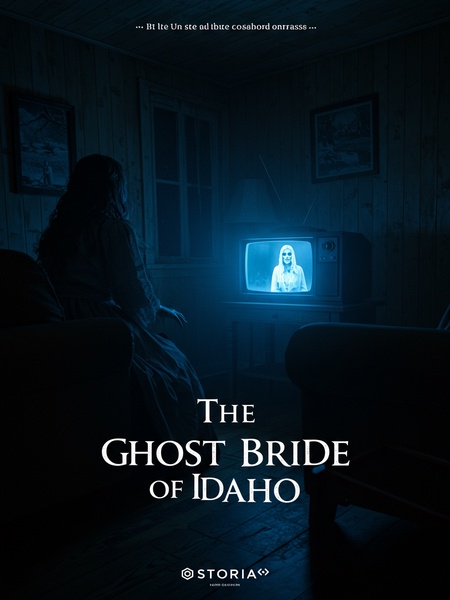Chapter 5: The Envelope and the Ghost
On my first night after retirement, I couldn’t sleep.
The old house creaked and settled as I stared at the ceiling, listening to Carol’s soft snores beside me.
Seeing my wife asleep, I quietly went to the living room and turned on the light.
I flicked on the old lamp next to my recliner, its shade still singed from a cigar I’d left burning years ago.
I brewed a pot of coffee, took out the envelope I’d found at my door, and examined it closely.
I liked my coffee strong—almost bitter enough to chew. The envelope sat heavy on the table, the circus ticket still inside.
The envelope was made of thick kraft paper—a kind you don’t see much anymore.
It reminded me of the kind my grandfather used for war letters, kept tucked in a cigar box under his bed.
But as I rubbed it between my fingers, it felt very soft, and I could feel tiny grains rubbing off.
A musty, papery smell clung to it, making me sneeze. I pressed my thumb against the faded ink, wondering how many hands it had passed through.
This suggested the envelope was already very old—at least twenty to thirty years old.
It made my skin crawl a little—had this been sitting in someone’s attic all this time, waiting for the right moment?
I took out the ticket inside; it was for a touring circus show scheduled for next week.
Part of me wanted to burn it, but curiosity won out. The circus was a big deal—a traveling act, all the way from Montreal, no less.
I checked the troupe—it was a large international group, with no American members from back then.
Not a single familiar name, just glossy faces on the website and bios in half a dozen languages.
So the ticket itself was probably just an invitation, not a clue.
But it felt deliberate—almost like bait, dangling in front of me.
Who put this letter here?
My mind raced through the possibilities: an old colleague? A prankster? Someone who knew more than they should?
Should I do nothing for the next week, just wait for that day to come?
I drummed my fingers on the kitchen table, the silence pressing in on me like a weight.
My eyes lingered on the words on the envelope:
"Marcus Hall, do you want to know the truth from back then?"
They taunted me, daring me to dig up the bones I’d tried so hard to bury.
Suddenly, a chill ran down my spine.
I pulled the blanket tighter around my shoulders, the sense of being watched as real as the wind rattling the windows outside.
I used to think that finding an envelope from more than twenty years ago wasn’t difficult.
After all, people squirrel away all sorts of things—love notes, tax returns, birthday cards. But something about this one felt different.
But judging by the faded handwriting, and relying on my years of experience, it must have been written a long time ago—probably as old as the envelope itself.
I angled it under the lamp, squinting at the way the ink had bled into the paper fibers. Whoever wrote this wanted it to last.
That is to say, this sentence was also written more than twenty years ago.
I could almost picture someone hunched over a kitchen table, the radio playing softly, writing those words with trembling hands.
Who wanted to tell me the truth back then, more than twenty years ago?
A friend? An enemy? Someone desperate to clear their conscience?
What did they originally want me to see?
Had I missed something, buried under the paperwork and gossip and grief?
Derek Lane was executed in 1999, and his only relative—Mrs. Lane—should have passed away by now.
I remembered her—a tiny woman in a faded sweater, clutching a rosary in her weathered hands, her eyes red from crying.
If there really was something hidden in the case, I can’t just wait; I must find whoever gave me this envelope.
Old instincts flared—curiosity, duty, maybe guilt. I shrugged on my jacket and reached for the flashlight I kept by the door.
I grabbed a flashlight, went out, opened the front gate, and walked to where I’d found the envelope, hoping to find a clue.
The night was colder than I expected, my breath puffing out in clouds. The streetlights cast long, eerie shadows across the cracked pavement.
At that moment, a cold wind swept through the alley outside. I instinctively looked up.
I shivered, my hand tightening around the flashlight handle as the wind tugged at my jacket.
Under the distant streetlight, it seemed a woman in flowing white was standing there.
She stood perfectly still, her dress rippling in the breeze, hair spilling over her shoulders like a dark veil.
And that face—I had only seen it in photos, more than twenty years ago.
My heart thudded in my chest. For a moment, I felt seventeen again, struck dumb by the impossible. My hands went cold, and I had to fight the urge to call out for Carol—like a kid scared of the dark.
Continue the story in our mobile app.
Seamless progress sync · Free reading · Offline chapters